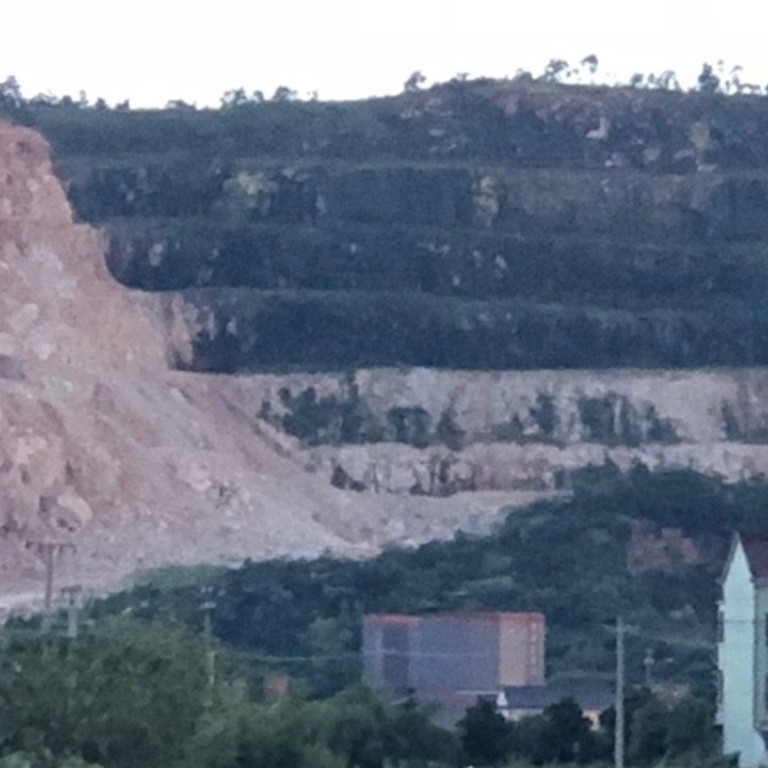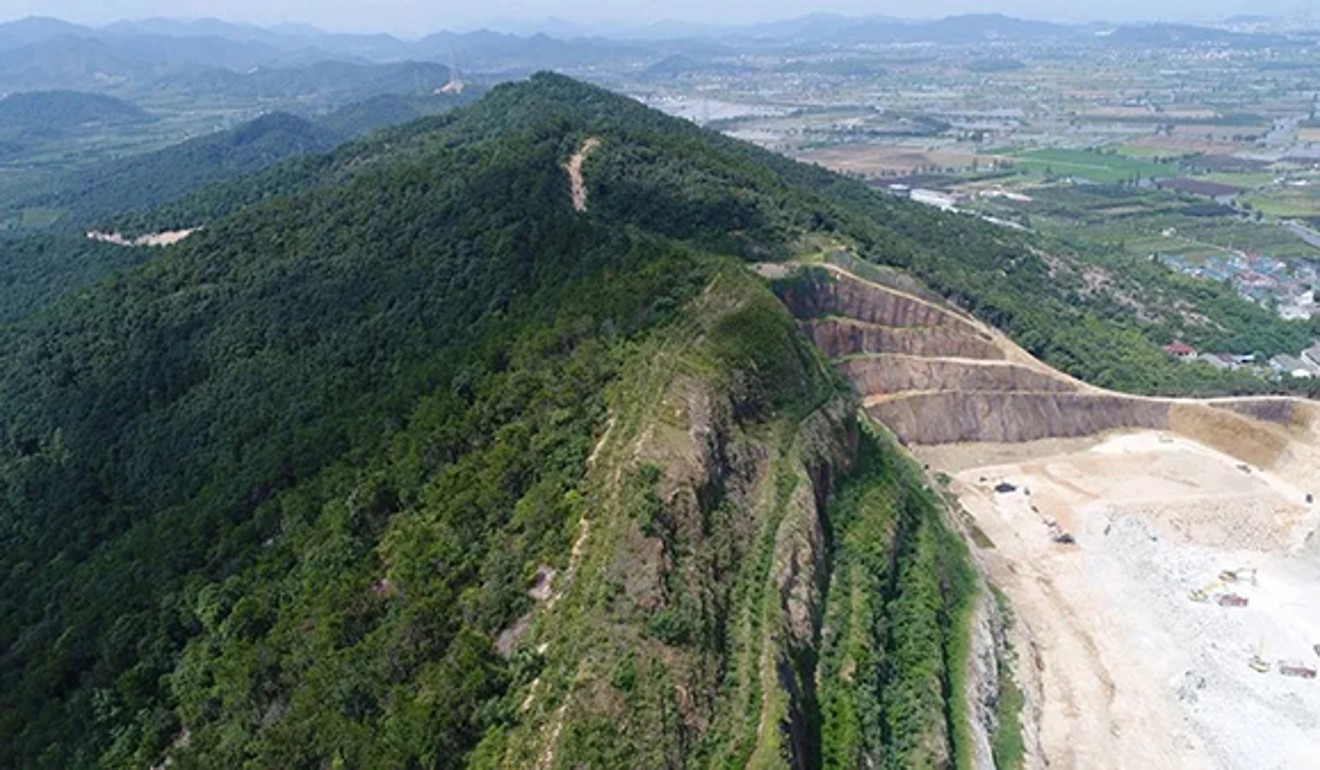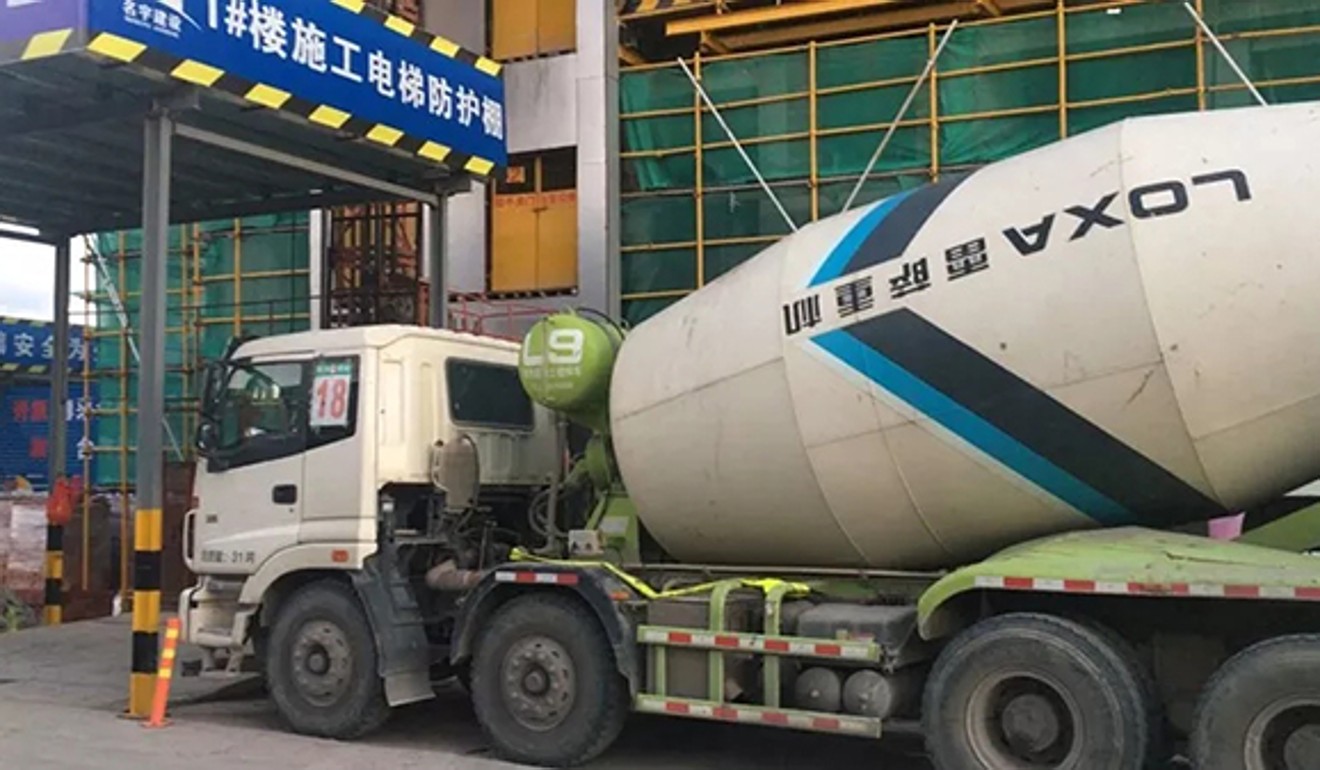
Mining halted over radioactive building material fears in eastern China
Mountain granite used in homes exceeds radiation limits prompting shutdown and investigation of two companies
Mining activity in a mountain in eastern China has been suspended after a Chinese media report that radioactive ore from the area had been used to build nearby homes.
The local government in Shaoxing, Zhejiang province, announced on Sunday that it had suspended two companies and set up a task force to investigate the claims.

The Beijing Youth Daily report said mining company Dongfa had provided radioactive granite to Yangli, a concrete manufacturer, which had been used in the construction of residential housing.
“We will investigate where the concrete was sold and provide the results to the public soon,” the local government said.
The statement added that radiation tests for rocks from the mountain conducted in July showed they met national standards for all kinds of use.
The government announcement came a day after Beijing Youth Daily reported that radiation figures recorded in one of the buildings exceeded the basic safety standard set by the International Atomic Energy Agency.

The newspaper reported that several environmentalists had recorded radiation data ranging from 0.37 to 1.49 microsieverts per hour in the mountain’s mining areas earlier this month.
After the Fukushima nuclear disaster, the Japanese government ruled that residents could only return to their homes if radiation levels were less than 0.23 microsieverts per hour.
In its report, Beijing Youth Daily found Dongfa had been mining rocks including granite and selling them to nearby concrete makers.
A Yangli worker told the newspaper that they “take about 600 tonnes to 1000 tonnes of rock [from Dongfa] every day”.
The newspaper tracked the Yangli trucks on Tuesday and found the concrete used in the construction of a residential building in the nearby city of Shaoxing. It also recorded radiation there of 0.25 to 0.35 microsieverts per hour.
An ex-transport worker, surnamed Cao, told the newspaper that he had previously been in charge of a 20-tonne capacity steamship that had transported rocks mined from Yifeng Mountain to Shaoxing for 10 years from 1992.
As early as 1957, the provincial geophysical prospecting team had listed the granite from Yifeng Mountain as radioactive.
In 2005, the Shaoxing Land and Resources Bureau asked the local mineral exploration authority to prospect Yifeng Mountain again.
The bureau sought an annual production of 100 tonnes of normal construction rocks from the mountain over 20 years to “meet the demand for urbanisation and infrastructure construction”.
While the exploration authority had recorded radiation far higher than the national limit, a government review concluded the rocks could be used for reclamation, water embankments and other deep foundation aggregate, according to Beijing Youth Daily.
An environmentalist working alongside the newspaper, identified only by her surname He, also found villagers had used the mountain rocks as a convenient supply of materials to build their houses.

